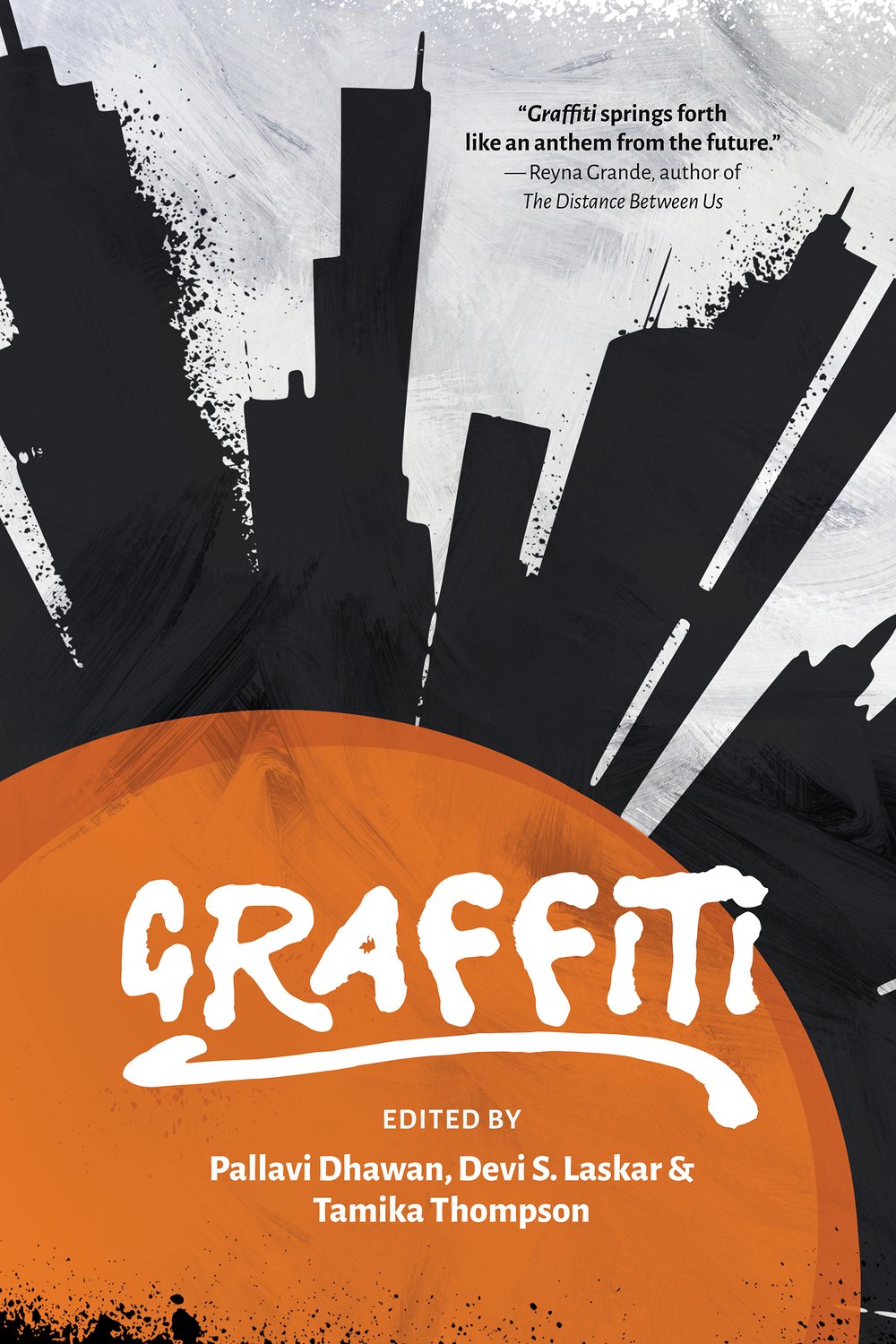Graffiti

The editors of Graffiti gave the contributors a special challenge: to write in a way that centers neither "whiteness" nor "anti-whiteness”, that is not limited by their struggle, their oppression, or how their characters will be received by the white imagination. To create a literary safe space of creative play far removed from the white gaze. A place where POC can focus on one another in solidarity.
The results are joyous and mind-expanding. Contributors to Graffiti include American Book Award-winner Tongo Eisen-Martin, award-winning fantasy author L. Penelope, award-winning writer Vickie Vértiz, alongside Kirin Khan, Gary Dauphin, Sarah LaBrie, Alycia Pirmohamed, Kanika Punwani, and many other acclaimed writers. It features a foreword by poet and novelist Elmaz Abinader, and an introduction by novelist Nayomi Munaweera.
Through poetry, short stories, and essays, the works in Graffiti expose lives that move in unexpected ways, rendering characters who don’t fit the cultural tropes we cling to. Graffiti shows what writers-of-color do when they are given permission to scribble, scrawl, romanticize, and speculate, without being politicized or exoticized.
I love the originality of the voices in Graffiti, the brave new writers I've discovered here, in addition to several I admired already. I love the concept of writing beyond whiteness, being unconcerned about any gaze other than our own. Kudos to the editors for collecting work that is at once meaningful and playful. I hope this book will find its way into the hands of many readers. It just might transform them. Mashallah! —Chitra Banerjee Divakaruni, author of The Forest of Enchantments
The voices in Graffiti howl with a collective energy and strength that is unmatched. These writers have the capacity to both tear you apart and heal you in one fell swoop. Each piece offers an opportunity for us to examine the ways in which communities of difference can band together to create a space for a revolution to take shape and flourish. Graffiti isn’t just a brilliantly composed collection, it is an absolutely essential one. I feel fundamentally changed after having read this powerful anthology. —Alex Espinoza, author of Cruising: An IntimateHistory of a Radical Pastime
Graffiti springs forth like an anthem from a future, where, unaware of the white gaze and ethnic codification, people of color are one. —Reyna Grande, author of The Distance Between Us

Tamika Thompson is a writer, producer, and journalist. Her writing has been published by, or is forthcoming in, The New York Times, Los Angeles Review of Books, The Huffington Post, Glass Mountain, and Literary Orphans, among others. She has attended the VONA/Voices Writing Workshop and the Community of Writers at Squaw Valley. She was born and raised in Detroit, Michigan, worked for several years in both New York and Los Angeles, and currently lives in Chicago with her husband and two children.
